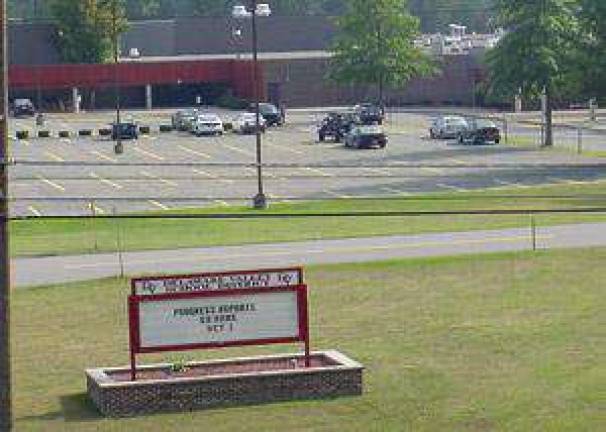Parents hot about district drug policy decisions

MILFORDnDistrict anti-drug measures are punishing the kids least likely to use drugs and omitting faculty and staff from similar searches, two parents charged last week before the Delaware Valley Board of Education. Policy for mandatory drug testing of all students seeking parking permits or involved in sports and extacurricular activities, and a new plan to use drug sniffing dogs to search student cars in the parking lots last week prompted a new round of debate. Parent Rick Davis said the policy was upsetting and all the more so when he learned that the state Supreme Court "isn't behind this." Board President Sue Casey, who is the mother of two children, said she initially opposed the new searches but has seen police making arrests and ambulances on campus and concluded that there are parents without the will or the desire to address the problem. "I wish we had more options," she said. Parent Denise Davis told the board that it is very unfair to "demean" the children with searches, while "the teachers, who have a union," are exempted. Ms. Davis, who said she has spent more than a decade in nursing, said it was her experience that the people least under suspicion, who are often found to be involved in drug trafficking. Board vice president John Wroblewski said faculty testing has economic ramifications for the district."You have to choose your battles," he said. "If I have to decide between a 12 percent raise and across the board testing, I don't know which way I'll go." Rick Davis charged that the 50 percent of the students now being tested, those involved in sports and activities, are those least likely to abuse drugs. He said testing is "a violation of rights." District solicitor Michael Weinstein said the courts have ruled in favor of testing where safety is in question. Weinstein recalled the public outcry seven years ago when "we had heroin sales on campus." Weinstein said the board's policy measures, involving testing and searches have not been overturned by the courts. But in 2003, the state Supreme Court did refuse to throw out a lawsuit against the district over the testing. The litigants at the time, Louis and Mary Ellen Theodore, declined to resume the lawsuit in county court as their children had already gone on to college. Davis said the district was giving residents "a false sense of security...doing the parents and the kids a disservice. People are going to sleep thinking, we don't have worry about this. They have it covered.' Don't waste my money testing kids that aren't suspicious," he said. Board member Jim Mooney said "it's too late to test a kid with dilated pupils. There's nothing more heart-wrenching than sitting on an expulsion hearing for drugs," he said. Other parents supported the board. William Fehr, who also serves as an ambulance volunteer, said he supported the tests and "would support increased testing. I've cut too many kids out cars in my 25 years as an EMT," he said. Officials said that some 724 students have been tested so far this year, with only one resulting failure. A failed test prompts a six-week program of weekly testing and counseling. Law enforcement is not involved unless there is a violation on campus, Weinstein said. "Our mission is to prepare them to have a life after school," said Superintendent Candis Finan. "I wish we didn't have to do this," but "in our society, this is a factor," she said.